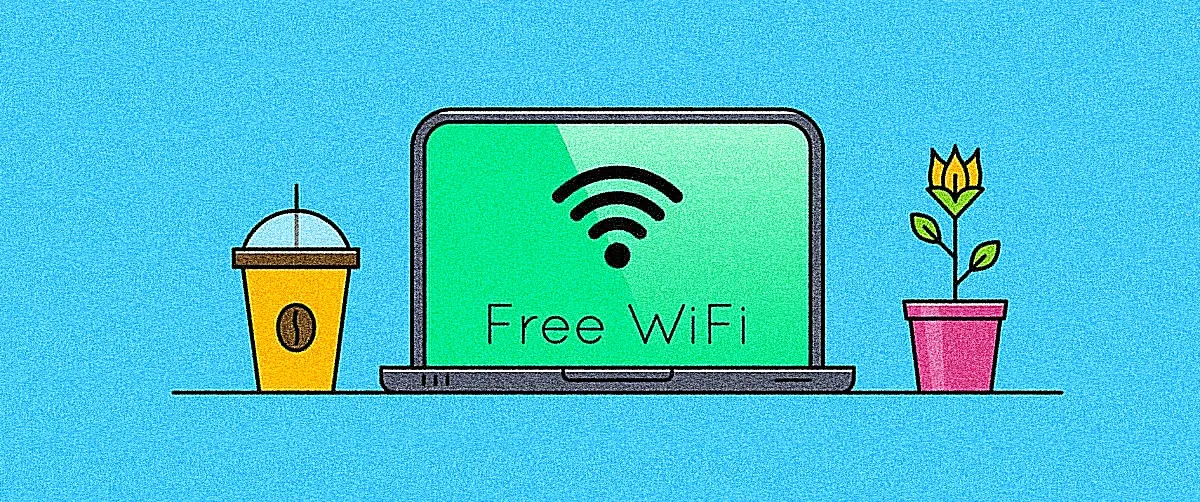Many public places such as cafes, hotels, airports, libraries, and others provide public Wi-Fi networks that allow you to connect to the internet quickly and easily. Although useful, these networks are available to anyone, and the data transmitted through them is not secure, unlike the Wi-Fi network available in your home or workplace. Therefore, you should take some precautions when connecting to these networks to ensure the protection of your personal data and avoid electronic breaches.
How to keep your data safe when connected to public Wi-Fi networks?
1-Check the network's reliability:
Let's say you're at the airport and you open the available Wi-Fi network list and see a network named "Free Airport Wi-Fi." You immediately connect to it, thinking it's the official network provided by the airport. But how can you make sure this network is actually provided by the airport? It's possible that someone created this network to make people think it's affiliated with the airport, so they use it and steal their data. That's why it's important to check the reliability of the network before connecting to it.
This may be difficult sometimes if there is a long list of available free networks with similar names. However, most airports have signs indicating their official free Wi-Fi network name, and this applies to many other public places where they display their official network name. This will help you ensure that you are connecting to the right network.
2- Avoid entering sensitive information:
Many public Wi-Fi networks require you to enter information before using them, such as your email address or phone number. If you're concerned that the place providing the Wi-Fi network will store or use your information for marketing purposes, enter a secondary email address.


